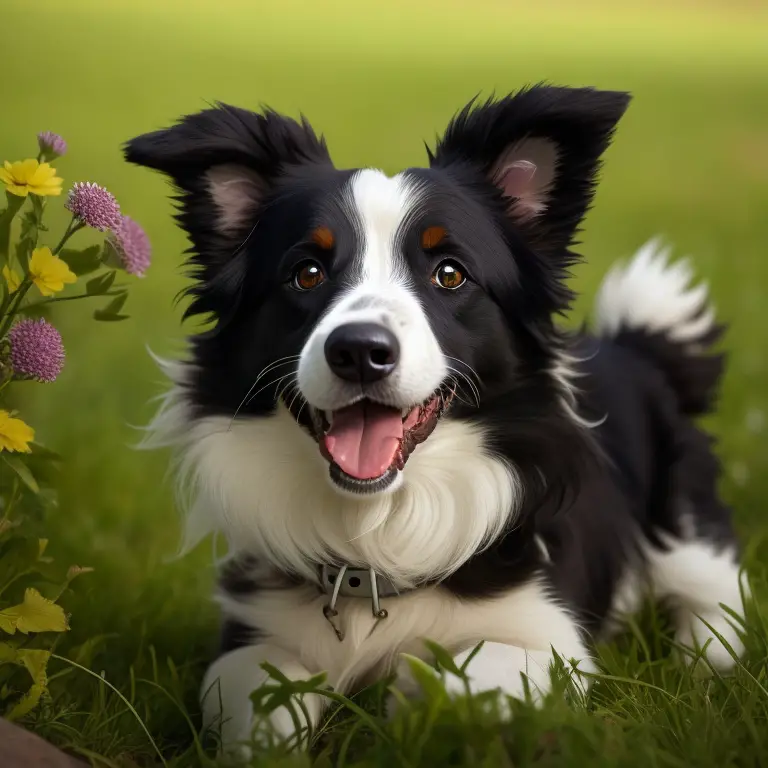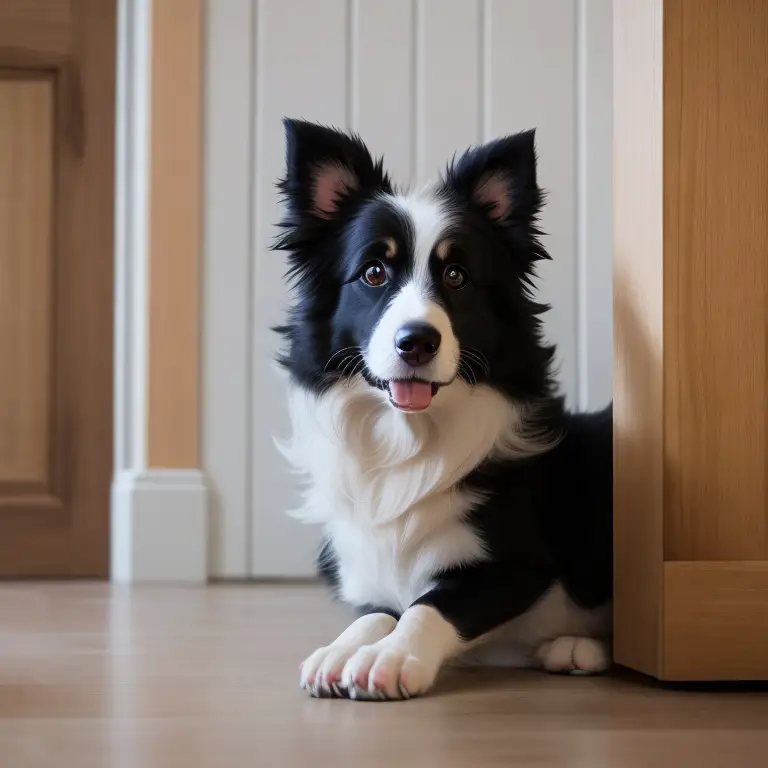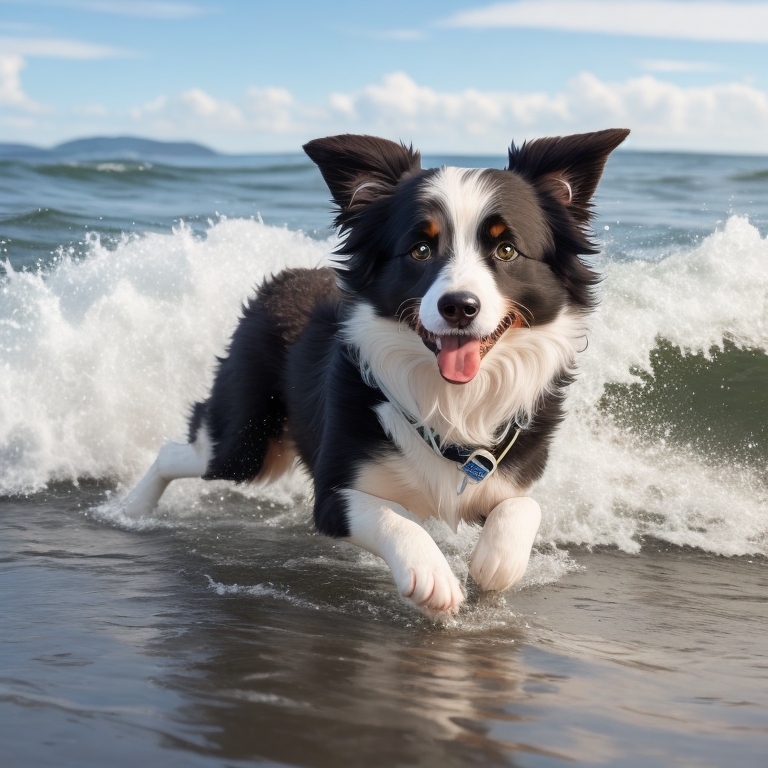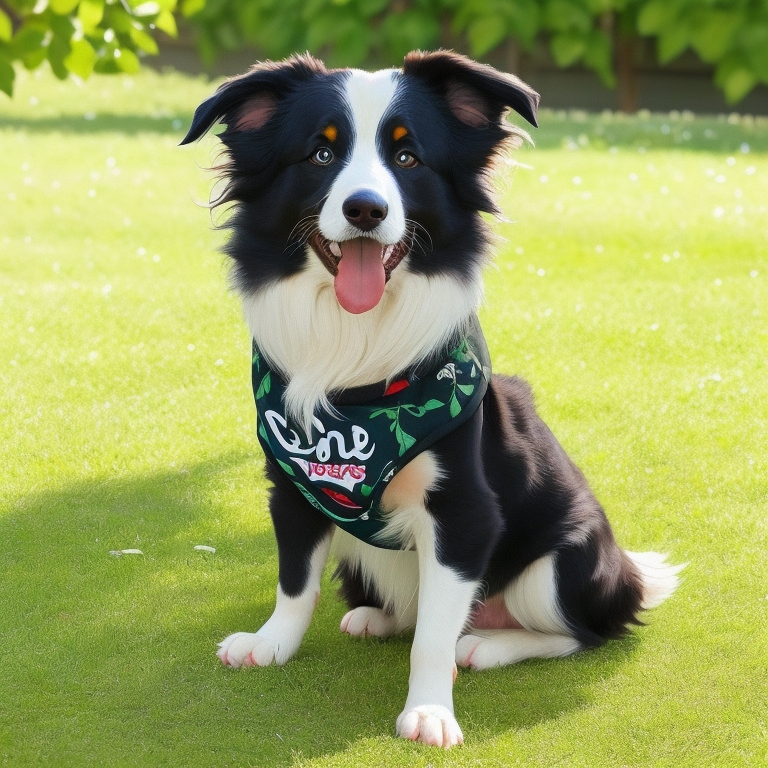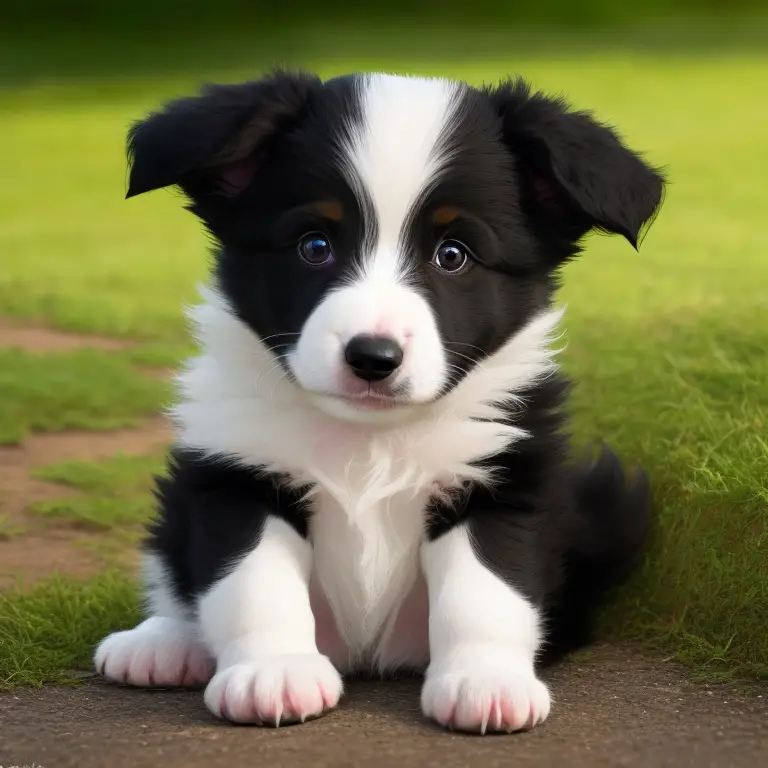How To Train a Border Collie Puppy?
So, you’ve decided to bring home a Border Collie puppy – congratulations! You’re in for a treat with this intelligent and energetic breed. But as with any new puppy, the training process can be overwhelming, especially with a breed as energetic and intelligent as a Border Collie.
But fear not, with the right techniques and plenty of patience, you can train your Border Collie puppy to be a well-behaved and happy member of your family.
In this article, we’ll delve into the basics of Border Collie puppy training, from setting up a routine to handling common problems, and provide tips and tricks for success. Let’s jump right in!
| Step | Description |
|---|---|
| 1 | Establish a routine for feeding, potty breaks, playtime, and training sessions. Consistency is essential for a Border Collie puppy. |
| 2 | Teach basic commands such as “sit,” “stay,” “come,” and “down” using positive reinforcement techniques like treats, praise, and play. |
| 3 | Introduce leash training and walking on a leash, starting with short, positive sessions and gradually increasing distance and duration. |
| 4 | Provide plenty of mental stimulation by incorporating training games, puzzles, and interactive toys into daily activities. |
| 5 | Expose your Border Collie puppy to a variety of environments, people, and animals to socialize them and prevent anxiety or aggression later in life. |
| 6 | Enroll your puppy in obedience classes to develop their skills and reinforce good behavior around distractions. |
| 7 | Continue training and socializing throughout your Border Collie’s life to maintain their physical and mental wellbeing and strengthen your bond. |
Understanding Border Collie Puppies
Border Collie puppies are incredibly intelligent and energetic dogs. They are known for their herding instincts and require an active and engaging lifestyle.
Understanding the breed’s natural behaviours and intrinsic qualities is crucial to successfully train and raise a healthy and happy Border Collie puppy.
Border Collie Puppies 101: When it comes to training a Border Collie puppy, it’s important to understand their background and breed characteristics. They were originally bred for herding, making them a highly intelligent and active breed.
This means that they require not only physical exercise, but also mental stimulation to keep them engaged and happy.
Border Collies are generally responsive to human interaction and thrive on praise and positive reinforcement. Behavioural Traits: Border Collies are a high-energy breed that requires plenty of exercise and mental stimulation to prevent destructive behaviour.
They are sensitive to their owners’ emotions and can quickly pick up on a variety of cues.
They’re also very curious and love exploring new areas; however, this needs to be balanced with proper supervision and caution as they can also be prone to chasing and herding behaviour. Exercise & Mental Stimulation: As stated earlier, Border Collies require physical activity as well as mental stimulation.
They’re happiest when they have a task to perform, so regular play sessions, running, and walking are all beneficial.
It’s recommended that you spend at least two or three hours a day exercising them. Playing with puzzles, obedience training, and herding games can provide the necessary mental stimulation that a Border Collie craves.
By gaining a fundamental understanding of Border Collie puppies, you can effectively train them.
The next step is to implement basic training techniques to create a routine that caters to the Border Collies’ needs.
Basic Training Techniques for Border Collie Puppies
Training a Border Collie puppy can be a challenging task, but it’s crucial for ensuring they grow up to be well-behaved and obedient dogs. Here are some basic training techniques to get you started.
Setting up a routine is key in training a Border Collie puppy.
Consistency is critical, and puppies thrive on a schedule. Establishing set times for meals, potty breaks, and playtime will teach them when it’s time to eat, exercise, and go outside.
Crate training is another essential training technique for Border Collie puppies.
Crate training helps with housebreaking, aids in preventing accidents, and creates a safe space for puppies. It’s crucial to introduce your Border Collie puppy to the crate slowly and positively to avoid creating negative associations.
Housetraining is a vital training technique that requires patience and consistency.
Supervising your puppy and taking them outside frequently can help establish the right habits. Offering treats and praise when they do their business outside will reinforce good behavior.
Socializing your Border Collie puppy is also crucial to their development.
Introducing them to different people and animals early on can help prevent aggression and ensure they become comfortable in different situations. By implementing these basic training techniques, you can set your Border Collie puppy up for success.
Consistency, patience, and positive reinforcement are key to successfully training a Border Collie puppy.
Advanced Training Techniques for Border Collie Puppies
Now that you have set up a routine and taught basic commands, it is time to move on to advanced training techniques for your Border Collie puppy. These techniques require more patience and consistency, but they will help your pup become a well-mannered and obedient companion.
Firstly, leash training is crucial for any dog, and particularly for a Border Collie who loves to run and chase things.
Start by introducing your puppy to the leash and collar in a positive and rewarding manner, such as giving treats and praise. Gradually increase the length and frequency of the leash, and encourage your pup to follow your lead.
Off-leash commands are also important, as Border Collies thrive in outdoor spaces and love to roam.
Begin in a safe and enclosed area, and use positive reinforcement when your puppy comes when called. Over time, the distance between you and your puppy can be increased.
Impulse control and focus training are vital for every dog, but especially for Border Collies who can be easily stimulated.
Teach your pup to focus on tasks and ignore distractions by starting with simple tasks and gradually increasing difficulty. Use positive reinforcement to encourage good behavior, and be patient with your puppy’s progress.
Lastly, be aware of your puppy’s socialization needs, both with humans and other animals.
A well-socialized Border Collie will be friendly and obedient with all types of people and pets. Expose your puppy to different situations and environments, and encourage positive interactions.
Remember, advanced training techniques require patience and consistency, and may take time.
However, the result will be a well-behaved and happy Border Collie puppy that you can be proud of.
Handling Common Border Collie Puppy Problems
Having a Border Collie puppy can be an exciting and rewarding experience, but it can also come with its challenges. In this section, we will discuss some common problems that Border Collie puppy owners might face and provide some tips on how to handle them.
Aggression is a concern that many Border Collie puppy owners have and addressing this issue early on is crucial.
It’s important to note that aggression can stem from fear or discomfort, so it’s essential to determine the root cause of the aggression. Seek professional advice if necessary and create a safe environment for your puppy.
Separation anxiety is another common problem that Border Collie puppies may develop.
This issue can lead to destructive behavior, excessive barking, and other negative habits. Starting with short separations and gradually increasing the length of time away can help your puppy to become comfortable with alone time.
Excessive barking can be a challenge for any dog owner, including those with a Border Collie puppy.
To address this issue, it’s essential to teach your puppy when it’s appropriate to bark, restrict their surroundings to reduce stimuli that trigger barking, and positively reinforce quiet behavior. Destructive behavior is a problem that many puppies exhibit at some point.
This behavior can cause damage to your belongings and your puppy’s health if they ingest something harmful.
Providing appropriate chew toys, crate training, and regularly exercising your Border Collie puppy can reduce their destructive behavior. Understanding the common problems that Border Collie puppies encounter and addressing them early on will ensure a healthy and happy puppy.
Remember to approach these problems with patience and consistency, and seek professional advice if necessary.
Final Tips for Successfully Training a Border Collie Puppy
Now that you have learned the basic and advanced training techniques for your Border Collie puppy, there are a few final tips you need to keep in mind to ensure successful training. Firstly, it is crucial to exercise patience and consistency throughout the training process.
Your Border Collie puppy might take some time to learn the commands and associate them with actions.
Therefore, you should stay calm and patient and avoid getting frustrated or angry when your puppy makes mistakes. Secondly, positive reinforcement is the key to successfully training your Border Collie puppy.
Rewards such as treats, toys, and verbal praises should be given immediately after the puppy performs the desired behavior.
This will encourage the puppy to repeat the behavior in the future. Lastly, you can seek the help of a professional dog trainer if you find it challenging to train your Border Collie puppy on your own.
A professional dog trainer can provide you with additional tips and tricks and can address any challenges you might encounter during the training process.
Remember that training your Border Collie puppy requires a lot of patience, consistency, and positive reinforcement. With time and dedication, you will have a well-trained and obedient Border Collie that will make a great companion and friend.
Conclusion
Training a Border Collie puppy requires patience, consistency, and a deep understanding of their unique needs. By setting up a routine, using positive reinforcement, and providing both physical and mental stimulation, you can create a strong bond with your puppy and help them thrive.
It’s important to address common issues like aggression and separation anxiety early on, and seek professional help if needed.
By following the tips and techniques outlined in this guide, you can successfully train your Border Collie puppy and enjoy a lifetime of happiness and companionship together. Remember, the effort you invest in your puppy’s training will pay off in the form of a well-behaved and joyful furry friend.

